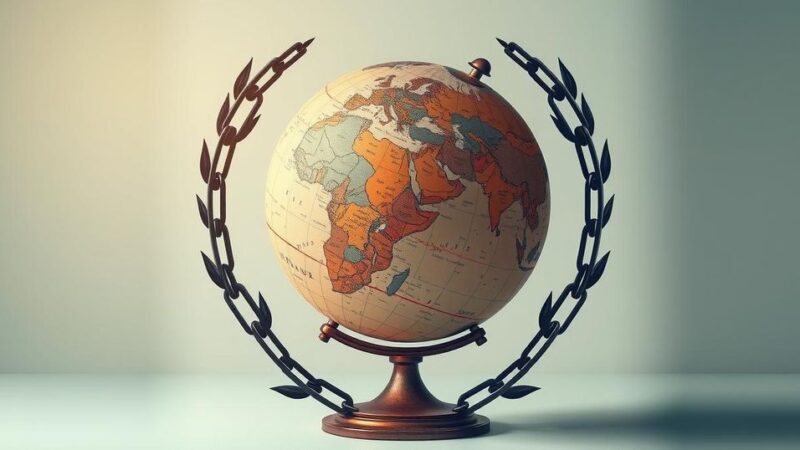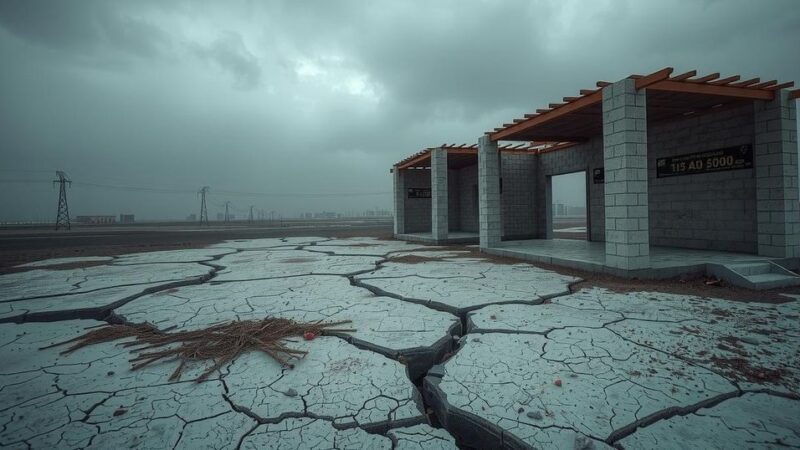The Horn of Africa is at risk of renewed conflict due to Eritrean President Isaias Afwerki’s actions to destabilize Ethiopia. For decades, Eritrea has fostered discord across the region, impacting countries like Sudan and Somalia. As the Tigray conflict resurges, international cooperation and diplomatic intervention are crucial to uphold peace and prevent catastrophic consequences, not only within the region but globally.
To prevent further conflict in the Horn of Africa, immediate action is imperative. Eritrean President Isaias Afwerki is attempting to rekindle violence in northern Ethiopia, and his actions must be curtailed. The Horn of Africa, marked by a tumultuous history and strategic importance, is embroiled in geopolitical rivalries that lead to widespread suffering among its populace.
Eritrea has played a disruptive role in regional conflicts for nearly fifty years, affecting Sudan, South Sudan, Somalia, and Ethiopia. President Isaias, who has led Eritrea since its independence in 1993, seeks conflict and chaos, akin to a pyromaniac delighting in fires. His governance has dismantled essential political structures and stifled development, leaving Eritrea in a dire state.
Citizens of Eritrea face mandatory and indefinite military service, prompting many to attempt dangerous migrations to escape their reality. The Eritrean state’s primary concern appears to be fomenting conflict and supporting insurgents and opposition movements throughout the region. Isaias continues to engage in destructive behaviors, aiming to exploit divisions within the Tigray People’s Liberation Front (TPLF).
The turbulent history of Eritrea and Ethiopia includes a bloody war in the late 1990s and a fragile peace agreement secured by Prime Minister Abiy Ahmed in 2018, for which he received the Nobel Peace Prize. Despite this reconciliation, Isaias’s intent to foster economic cooperation has remained nonexistent. Following TPLF’s efforts to reclaim power in 2020, Eritrean forces invaded Tigray, worsening the humanitarian crisis.
The 2022 Pretoria Peace Agreement brought hope for stability but represented a setback for Isaias, who benefits from ongoing conflict. His efforts to counter this agreement through militia support in Ethiopia’s Amhara region and alliances with dissenting TPLF factions signal a troubling shift. Renewed tensions could prove devastating, jeopardizing the fragile peace established between the Ethiopian government and the TPLF.
The ramifications of renewed conflict in the Horn of Africa could be severe, particularly given ongoing turmoil in Sudan and Somalia, and threats posed by extremist groups. The potential for chaos to spread across the region raises alarms, as it could empower terrorist organizations and disrupt global trade via the Red Sea. International stability hinges on the Horn of Africa’s peace.
In light of these complexities, it is crucial for the international community to intervene decisively to uphold peace and deter destabilizing influences like Isaias. The Pretoria Peace Agreement is not just an African concern but a global imperative, as a collapse of order would lead to widespread consequences including refugee crises and the spread of extremist ideologies. Conversely, a commitment to peace could unlock the region’s potential as a bridge for trade and cooperation.
The time to act is now; the choice between chaos and peace is critical. As various global powers have vested interests in the region, collaborative diplomatic efforts must be prioritized to safeguard the Horn’s stability.
In summary, the Horn of Africa faces pressing concerns due to Eritrean President Isaias Afwerki’s destabilizing actions. His history of seeking conflict threatens peace in Ethiopia and the broader region. The international community must intervene to reinforce existing peace agreements, as the stability of the Horn has far-reaching implications beyond Africa. Prompt action is essential to avert the descent into chaos and foster a collaborative future.
Original Source: www.aljazeera.com






